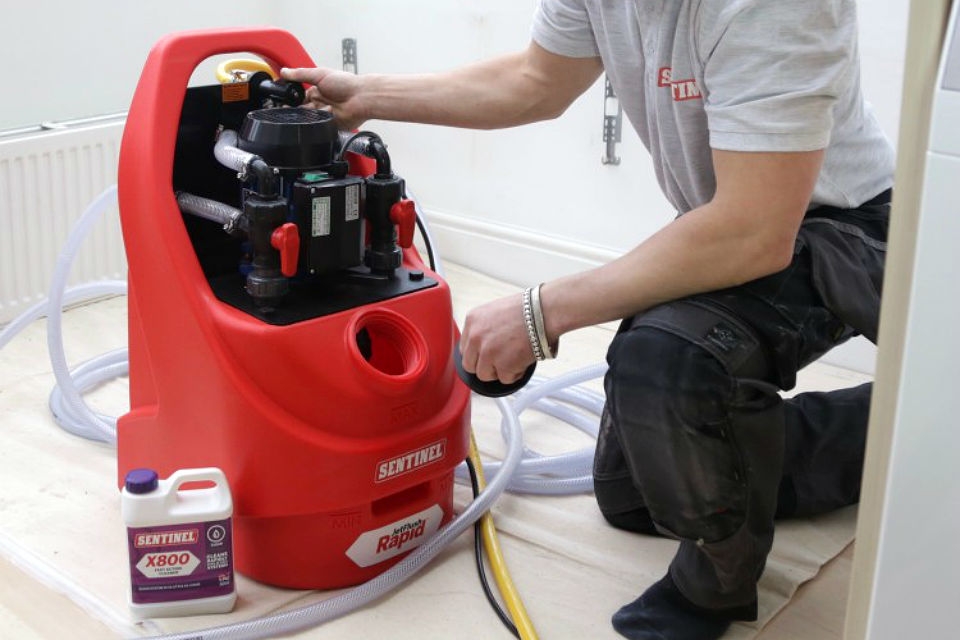Benefits Of A Power Flush
17-08-2017
A power flush can help maximise the efficiency of your boiler and central heating system.
After a power flush, your heating system could be restored to nearly-new condition, without the hassle or financial expense of replacing an old, inefficient boiler.
A power flush involves circulating high-strength cleansing chemicals, including a descaler, a corrosion inhibitor and a sludge breaker, throughout a central heating system in order to remove debris, rust and contaminants. The aim of a power flush is to improve system circulation and, therefore, efficiency that ultimately saves you money.

Power Flush Benefits
After your central heating system has been flushed, you'll know the benefits straight away. Internally your heating system will be operating much more efficiently. The cleaner flow of hot water may even reduce boiler and pipe noises!
Additional Power Flush Benefits
Aside from the obvious cost-saving benefits of a more efficient central heating system, a power flush can help increase hot water temperatures, speed up radiator convection and provide peace of mind with less chance of boiler breakdowns.
Signs You Need A Power Flush
With annual boiler servicing and regular maintenance, a power flush should only be required every five years. A power flush should always be conducted before fitting a new boiler, but don't worry, we include a power flush with our boiler upgrades as standard. Any of the following could be a sign that your central heating system needs a power flush:
- Inefficiency and lost heat - Poorly maintained heat systems can cause sludge, deposits, rust and debris to build up in pipes, radiators and the boiler. These blockages restrict the flow of water throughout the heating system, in some cases preventing heat from reaching all areas. This means lost heat and wasted money.
- Little or no hot water - Blocked pipework and/or heat exchanger due to excess build up could also be the reason for your heating system producing little or no hot water.
- Cold spots on radiators - If your radiators are cold at the bottom but hot at the top, your heating system could have a sludge problem. Cold spots are caused by the build up on iron oxide sludge, this collects at the bottom as its heavier than water, which restricts to the flow of hot water.
- Dirty water when bleeding radiators - Bleeding your radiators can help improve heat cirulation and convection. However, if the water is discoloured when bleeding your radiatiors, this could be a sign your heating system needs a power flush.
- Pump or valve seizure and/or failure - Black oxide sludge increases wear and tear on the shaft and bearings, which is the most common cause of pumps seizing or failing completely. A stuck valve could result in a very inefficient radiator.
- Hidden signs - It should also be noted that even if you're not experiencing any of the above, your heating system could still be building up sludge and debris. As recommended, you should power flush your heating system every five years to prevent build up and inefficiency.
Power Flush Costs
Every central heating system is unique dependent on the household, equipment and usage. Therefore, the cost of a power flush depends on your specific heating system. As a guide price, we charge £300 for a power flush on a heating system with up to five radiators, and £48 per additional radiator.
Call us on 01295 224844 or contact us online, and we can discuss your exact requirements.







